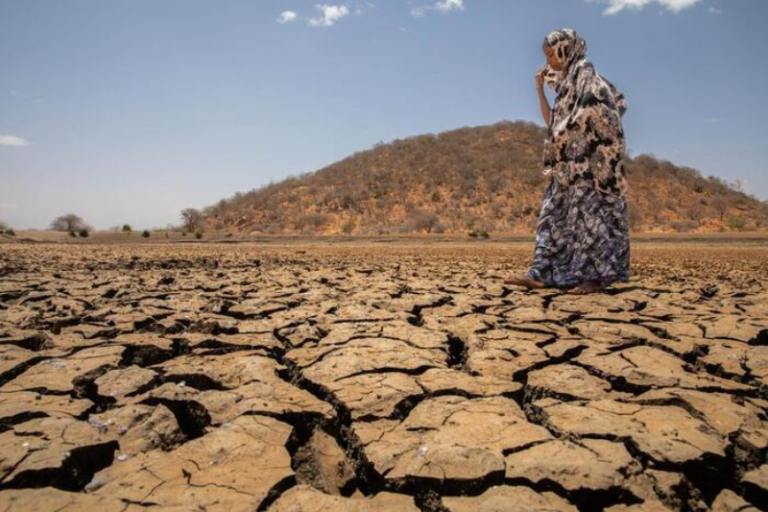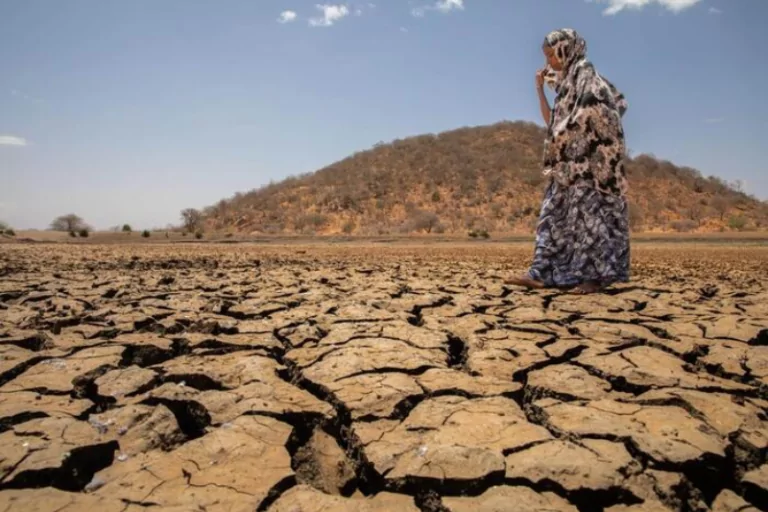

a rise in droughts due to global warming is expected in the horn of africa
The Horn of Africa may be in danger of experiencing more severe droughts as a result of ongoing human-caused global warming. An unpleasant forecast is presented in a detailed study that was recently published in the Nature Journal. The conclusions are based on a reconstruction made from lake sediment that shows the variability of the hydroclimate over the last 75,000 years.
According to the study, human-caused climate change will have an impact on the hydrological cycle, which is the movement of water around the planet. This will be particularly significant in warm-temperature regions, such as the tropics, where agriculture is heavily reliant on the monsoon rainy seasons. As a result, drought conditions have become increasingly common in the Horn of Africa, which is the easternmost region of the African continent, in recent years.
The study does, however, show that this is not the case with climate models, which predict that the region’s precipitation should rise in tandem with rising temperatures. In order to investigate these differences, researchers examined sediment from Kenyan and Tanzanian Lake Chala to investigate how moisture and temperature have interacted over the previous 75,000 years.
They discovered that there was a positive correlation between temperature and moisture in the area during glacial conditions. However, about 11,700 years ago, when the Holocene began, the air contained more than 250 parts per million of carbon dioxide, and the temperatures were similar to what they are today. That’s when the relationship between moisture and temperature shifted. Instead of being wetter, things got drier as the temperature rose.
The authors hypothesize that this shows the area passed a tipping point where the temperature’s beneficial effects on evaporation outweighed its effects on precipitation. According to the authors, Allix Baxter and Dirk Verschuren, their research indicates that the Horn of Africa will probably continue to experience drier conditions if global warming continues.
Professor Raphael Kapiyo noted that the area’s temperature and moisture content were clearly related back in the frigid days. Environmental scientist Prof. Raphael Kapiyo of Maseno University “In the past, we observed that temperature and moisture interacted to shape our climate,” he stated. This study validates the established pattern.” “This study has serious consequences for our area. These results confirm our concerns about a worsening scenario, as we have already seen a troubling increase in droughts,” Kapiyo said.
The drought has had a direct impact on about 50 million people in the Horn of Africa and 100 million in neighboring regions. With up to 20 million people experiencing acute food insecurity and maybe starvation, the situation is dire. The area has been suffering from the worst drought in forty years since October 2020. Long-lasting dry spells interspersed with intense, sudden downpours that result in flash floods have defined the catastrophe. Five seasons in a row have had below-average rainfall amounts.
After five years of low rainfall, the region is currently experiencing the worst drought it has seen in forty years. More than 4.35 million people are in urgent need of humanitarian aid, and 180,000 refugees have left South Sudan and Somalia for Kenya and Ethiopia, two countries that are also experiencing severe drought. An international team of climate scientists from the World Weather Attribution Group has conducted a quick analysis that demonstrates how greenhouse gas emissions are to blame for the region’s agricultural drought, which has put over 20 million people at risk of severe food insecurity.
To prevent future extreme weather occurrences from turning into disasters, it is imperative to address the underlying causes of vulnerability and increase investment in adaptation strategies that are resilient to both wet and dry extremes. The Red Cross Red Crescent Climate Center’s Cheikh Kane, a climate resilience policy advisor, emphasized the need for action to address the underlying causes of vulnerability and to increase funding for adaptation measures that are resilient to both the dry and wet extremes that are typical in this region.
“While searching for ways to reduce the drivers of vulnerability, such as state fragility and conflict, environmental degradation, rain-dependent livelihoods, poverty, and marginalization, we need to reinforce the things that are working, such as formal and informal social protection mechanisms, early warning systems, and effective drought management,” he stated.
The researchers’ findings are a definite indication that, if human-induced warming persists, the Horn of Africa will experience even drier conditions in the future. They emphasize that in order to accurately forecast weather in tropical regions, climate models must take into account the interactions between the land and the atmosphere.
The cricket authority in Zimbabwe will organize matches between top international teams in a major cricket event expected to succeed…
In 2025 the South African Social Security Agency (SASSA) announced its designated dates for social grant payments that benefits millions…
Africa is taking big steps by entering the global green technology manufacturing market to stop being just a supplier of…
Two mobile telecom leaders, MTN Group and Airtel Africa, joined forces to create a new digital infrastructure system throughout African…
South African President Cyril Ramaphosa defended his nation against claims of white discrimination made by tech magnate Elon Musk. After…
Hilton launched Signia by Hilton for its first appearance in Egypt and Africa through its hotel expansions. These hotels at…
This website uses cookies.